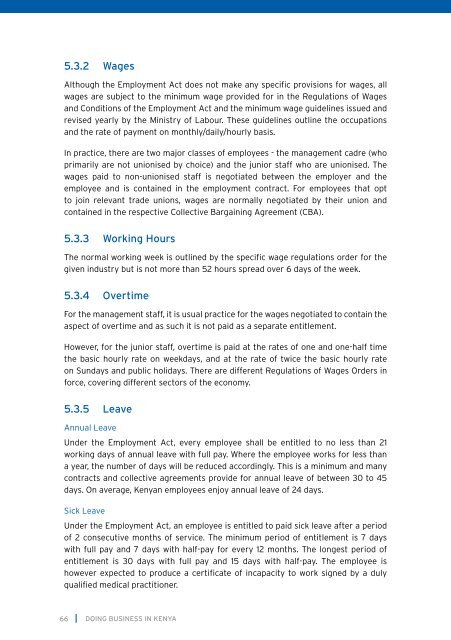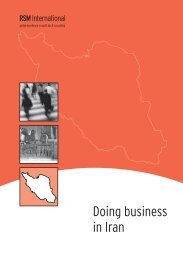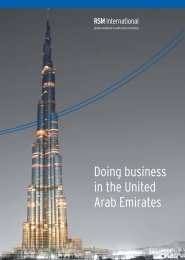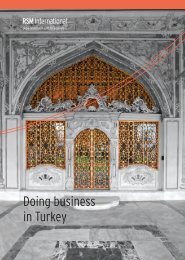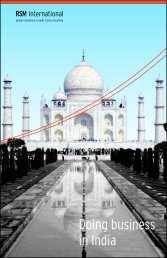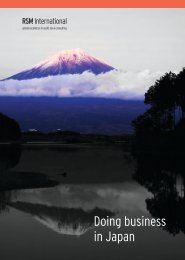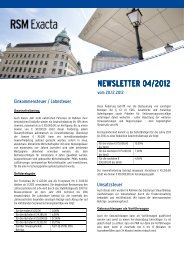Doing Business in Kenya - RSM International
Doing Business in Kenya - RSM International
Doing Business in Kenya - RSM International
- No tags were found...
You also want an ePaper? Increase the reach of your titles
YUMPU automatically turns print PDFs into web optimized ePapers that Google loves.
5.3.2 WagesAlthough the Employment Act does not make any specific provisions for wages, allwages are subject to the m<strong>in</strong>imum wage provided for <strong>in</strong> the Regulations of Wagesand Conditions of the Employment Act and the m<strong>in</strong>imum wage guidel<strong>in</strong>es issued andrevised yearly by the M<strong>in</strong>istry of Labour. These guidel<strong>in</strong>es outl<strong>in</strong>e the occupationsand the rate of payment on monthly/daily/hourly basis.In practice, there are two major classes of employees - the management cadre (whoprimarily are not unionised by choice) and the junior staff who are unionised. Thewages paid to non-unionised staff is negotiated between the employer and theemployee and is conta<strong>in</strong>ed <strong>in</strong> the employment contract. For employees that optto jo<strong>in</strong> relevant trade unions, wages are normally negotiated by their union andconta<strong>in</strong>ed <strong>in</strong> the respective Collective Barga<strong>in</strong><strong>in</strong>g Agreement (CBA).5.3.3 Work<strong>in</strong>g HoursThe normal work<strong>in</strong>g week is outl<strong>in</strong>ed by the specific wage regulations order for thegiven <strong>in</strong>dustry but is not more than 52 hours spread over 6 days of the week.5.3.4 OvertimeFor the management staff, it is usual practice for the wages negotiated to conta<strong>in</strong> theaspect of overtime and as such it is not paid as a separate entitlement.However, for the junior staff, overtime is paid at the rates of one and one-half timethe basic hourly rate on weekdays, and at the rate of twice the basic hourly rateon Sundays and public holidays. There are different Regulations of Wages Orders <strong>in</strong>force, cover<strong>in</strong>g different sectors of the economy.5.3.5 LeaveAnnual LeaveUnder the Employment Act, every employee shall be entitled to no less than 21work<strong>in</strong>g days of annual leave with full pay. Where the employee works for less thana year, the number of days will be reduced accord<strong>in</strong>gly. This is a m<strong>in</strong>imum and manycontracts and collective agreements provide for annual leave of between 30 to 45days. On average, <strong>Kenya</strong>n employees enjoy annual leave of 24 days.Sick LeaveUnder the Employment Act, an employee is entitled to paid sick leave after a periodof 2 consecutive months of service. The m<strong>in</strong>imum period of entitlement is 7 dayswith full pay and 7 days with half-pay for every 12 months. The longest period ofentitlement is 30 days with full pay and 15 days with half-pay. The employee ishowever expected to produce a certificate of <strong>in</strong>capacity to work signed by a dulyqualified medical practitioner.66DOING BUSINESS IN KENYA


